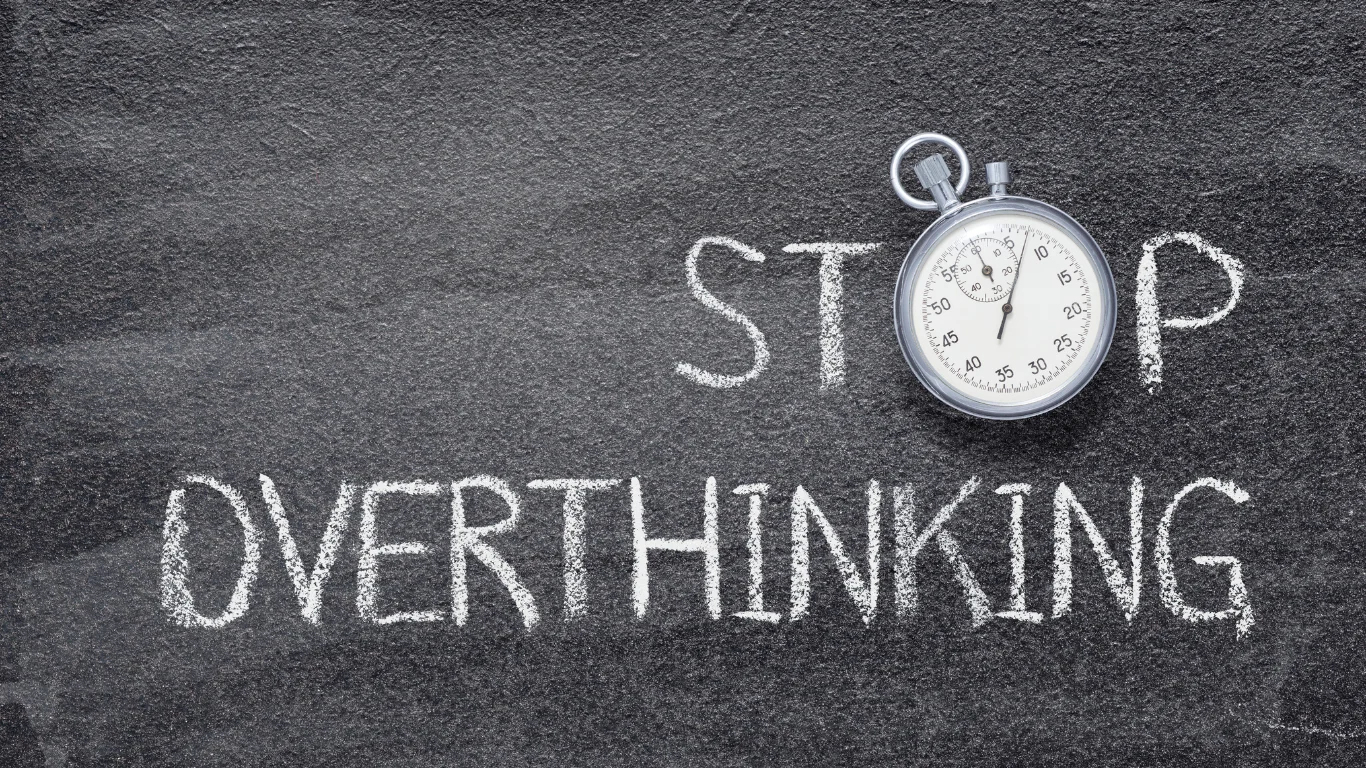Anxiety and overthinking often create a vicious cycle, making it hard to break free. Overthinking magnifies fears, self-doubt, and uncertainty, trapping your mind in endless “what-ifs” and worst-case scenarios. This mental spiral drains energy, heightens stress, and makes even small tasks feel insurmountable.
The good news? You can transform overthinking into a stepping stone toward calm and clarity. This guide explores practical, actionable techniques to help you manage anxiety, break free from overthinking, and regain control over your thoughts.
Understanding the Link Between Overthinking and Anxiety
Overthinking isn’t just worrying—it’s a repetitive thought pattern that intensifies stress and uncertainty. When you repeatedly replay scenarios, your body’s stress response kicks in, causing physical symptoms such as:
- Fatigue.
- Restlessness.
- Tension or headaches.
This cycle reinforces itself, making it even harder to focus, act, or think clearly. Recognizing the connection between overthinking and anxiety is the first step toward breaking free. Overthinking isn’t a sign of weakness—it’s your mind’s way of trying to process stress, and with the right guidance, it can shift toward healthier patterns.
Recognizing the Signs of Overthinking
Do you often feel stuck in a loop of unproductive thoughts? Here are some common signs of overthinking:
- Replaying scenarios repeatedly without finding solutions.
- Seeking constant reassurance from others.
- Struggling to make decisions out of fear of mistakes.
- Feeling paralyzed by “what-ifs” and worst-case scenarios.
If these habits sound familiar, you’re not alone. Overthinking is common, but identifying it is the first step toward meaningful change.
Anxiety Management Techniques to Overcome Overthinking
Here are five practical techniques to calm your mind and reduce anxiety:
1. Practice Mindfulness and Meditation
Mindfulness shifts your focus to the present moment, reducing the power of anxious thoughts. A simple mindfulness exercise to try:
- Sit quietly and close your eyes.
- Take slow, deep breaths, focusing on the sensation of air moving in and out.
- If your mind wanders, gently guide it back to your breath.
Regular meditation strengthens this skill, creating calm even during high-stress moments.
2. Use Cognitive Behavioral Techniques (CBT)
Cognitive Behavioral Therapy (CBT) is a proven approach to manage anxiety by changing negative thought patterns. According to the American Psychological Association, CBT helps interrupt repetitive thought cycles, replacing them with constructive and balanced thinking.
One practical CBT technique is “thought-stopping”:
- When overthinking starts, visualize a stop sign or say “stop” aloud.
- Redirect your focus to something constructive, such as listing solutions or practicing gratitude.
For more on CBT, explore coaching techniques from The Wellness Society, which emphasize mindfulness, reframing thoughts, and managing anxious emotions effectively.
3. Try Journaling
Writing externalizes your thoughts, making them feel more manageable. Use a journal to:
- Identify what’s bothering you.
- List possible solutions.
- Reflect on patterns or triggers of overthinking.
Journaling doesn’t require perfection—its purpose is to understand and release your thoughts.
4. Use the “5-4-3-2-1” Grounding Technique
This sensory exercise helps shift your focus from anxious thoughts to the present moment:
- 5 things you can see around you.
- 4 things you can touch.
- 3 things you can hear.
- 2 things you can smell.
- 1 thing you can taste.
Grounding exercises like this anchor your mind in your surroundings, creating calm in moments of anxiety.
5. Schedule “Worry Time”
Set aside 10–15 minutes each day for focused “worry time.” During this period, write down your concerns without filtering them. When time’s up, close your journal and move on. This practice helps you compartmentalize worries, freeing your mind for the rest of the day.
Building Long-Term Resilience Against Overthinking
To reduce overthinking long-term, focus on habits that support your overall mental health:
- Prioritize sleep: A consistent sleep schedule improves your ability to manage stress.
- Stay active: Exercise and yoga release endorphins, reducing anxiety.
- Limit stimulants: Reducing caffeine and alcohol intake minimizes anxiety triggers.
Small, consistent efforts build resilience over time, making overthinking less frequent and more manageable.
Let Best DOC Help You Find Clarity and Calm
Breaking the cycle of overthinking and anxiety isn’t easy, but you don’t have to face it alone. At Best DOC Home Healthcare, we provide personalized mental health services tailored to your needs.
Our experienced NLP practitioners and life coaches offer in-home counseling to help you:
- Identify the root causes of anxiety and overthinking.
- Develop actionable strategies to manage your thoughts.
- Build sustainable habits for long-term mental health.
In addition to our mental health services, our Doctor-on-Call service ensures your physical and emotional well-being are addressed holistically.
Your Path to Calm and Confidence
Turning overthinking into clarity is possible with the right support and techniques. Whether through mindfulness, journaling, or professional guidance, every step counts toward a more balanced and confident mindset.
Take the first step toward overcoming anxiety by reaching out to Best DOC Home Healthcare today. Together, we’ll transform overthinking into a pathway to peace and personal growth.











